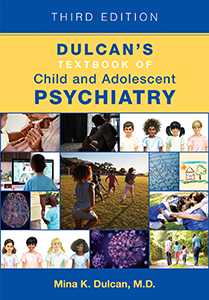Sections
Excerpt
Eating and feeding disorders are characterized by aberrations in eating or feeding behaviors and occur across the age spectrum. Eating disorders are most often observed in late adolescent and young adult females, with typical onset during adolescence (ages 12–18 years). Eating disorders may be chronic and relapsing conditions and are often associated with significant medical morbidity and psychiatric comorbidity. Feeding disorders can be diagnosed across the life span, with childhood onset being particularly common. The etiology, maintaining factors, and treatment of eating and feeding disorders have been understudied. In DSM-5 (American Psychiatric Association 2013), eating and feeding disorders are classified together and include 1) anorexia nervosa (AN), 2) bulimia nervosa (BN), 3) binge-eating disorder (BED), 4) avoidant/restrictive food intake disorder (ARFID), 5) pica, 6) rumination disorder, 7) other specified feeding or eating disorder, and 8) unspecified feeding or eating disorder.
Access content
To read the fulltext, please use one of the options below to sign in or purchase access.- Personal login
- Institutional Login
- Sign in via OpenAthens
- Register for access
-
Please login/register if you wish to pair your device and check access availability.
Not a subscriber?
PsychiatryOnline subscription options offer access to the DSM-5 library, books, journals, CME, and patient resources. This all-in-one virtual library provides psychiatrists and mental health professionals with key resources for diagnosis, treatment, research, and professional development.
Need more help? PsychiatryOnline Customer Service may be reached by emailing [email protected] or by calling 800-368-5777 (in the U.S.) or 703-907-7322 (outside the U.S.).



